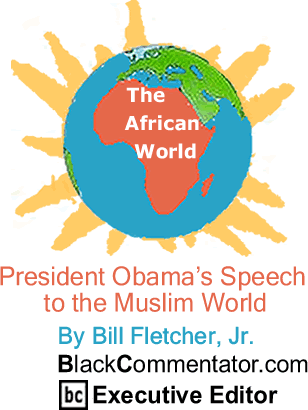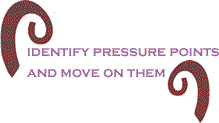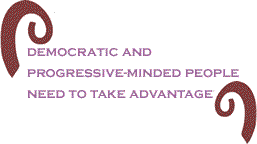
|
|||||||||||||||||||||||

|
|

Custom Search
|
|
 |
|
Let’s start with
the obvious. President Obama’s speech was a remarkable speech for
a President of the To be honest, there are things
Obama laid out that I never expected to hear a Obama set out to repair the
tremendous damage that had been done by the Bush administration
in the relations of the That said, one must be equally
cautious in response. Many commentators have pointed to various
weaknesses in the speech. Keeping in mind that it was a President
of the The problems that the world
has with the
The President discussed the
importance of democracy in the Much more can and should be said about the entire text of the speech. What is more critical is to figure out where does one go from here? Specifically, for progressive groups and individuals, what’s next? Some friends on the Left may tend to disagree, but the unusual nature of this moment must be seized upon by progressive forces and built upon. In other words, while President Obama may not - and did not - say everything that we believe needs to be said, nor necessarily said things in the way that we would have, what can happen now is to identify pressure points and to move on them. Concretely: Obama is being attacked by the
extreme Right. The nature of the attacks is so completely over the
top as to be absurd. One particular attack, however, is one we should
respond to: the suggestion that a President of the Obama dared to use the term
“occupation” to describe the oppression of the Palestinians. Not
only should we unite with this, but we should draw out the implications,
specifically, that an occupied people have the right to resist;
that according to international law, settlements are completely
and unquestionably illegal; and that the
We must take on President Obama
on The easiest thing that can be
done now is either to jump for joy over the speech or to dismiss
it. Both approaches are misguided. What is necessary, instead, is
to draw out the implications of the openings created by President
Obama and push the Administration on each of those points. We also
have to challenge the Administration when he is completely wrong,
e.g., A breach has been created within the ruling circles and democratic and progressive-minded people need to take advantage of it. If we fail, not only will we miss a tremendous opportunity but we will cede the ground to the irrationalist Right which is out for blood, and not only Obama’s. BlackCommentator.com
Executive Editor, Bill Fletcher, Jr., is a Senior Scholar with the
Institute for Policy Studies,
the immediate past president of TransAfrica Forum and co-author of, Solidarity Divided: The Crisis in Organized Labor and a New Path
toward Social Justice |
|
Any BlackCommentator.com article may be re-printed so long as it is re-printed in its entirety and full credit given to the author and www.BlackCommentator.com. If the re-print is on the Internet we additionally request a link back to the original piece on our Website. Your comments are always welcome. eMail re-print notice
If you send us an eMail message we may publish all or part of it, unless you tell us it is not for publication. You may also request that we withhold your name. Thank you very much for your readership. |
|
| |
|
| June
11 , 2009 Issue 328 |
|
| Executive Editor: Bill Fletcher, Jr. |
| Managing Editor: Nancy Littlefield |
| Publisher: Peter Gamble |
| Est. April 5, 2002 |
Printer Friendly Version
in resizeable plain
text format or pdf
format. |
| Frequently Asked Questions |
 |

|
 |
 |
 |
| |
| |




























 While
President Obama has been irrationally attacked by right-wing Zionists
for allegedly being anti-Jewish, his comments went out of their
way to describe the persecution faced by Jews over thousands of
years. While I never expected to hear the President admit to the
colonial impulse that resulted in the construction of
While
President Obama has been irrationally attacked by right-wing Zionists
for allegedly being anti-Jewish, his comments went out of their
way to describe the persecution faced by Jews over thousands of
years. While I never expected to hear the President admit to the
colonial impulse that resulted in the construction of 
 We
should agree that the
We
should agree that the 





